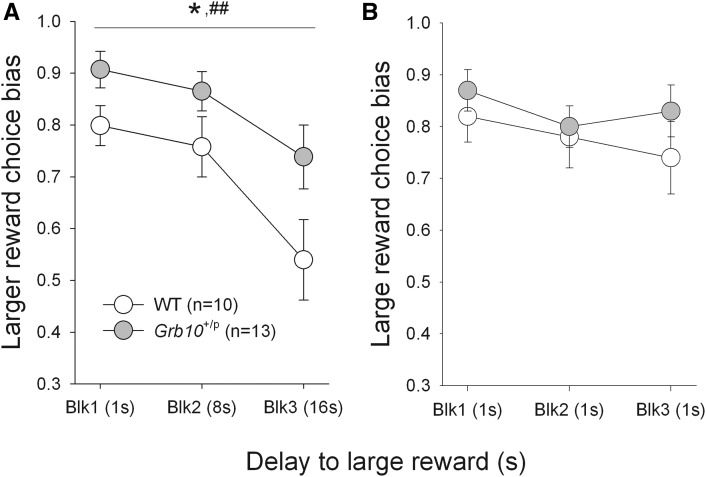Figure 1.
Grb10+/p mice make less impulsive choices on a delayed reinforcement task. Behavior of both Grb10+/p and wild-type (WT) mice changed across session blocks (blk) with increasing delay, such that choice bias moved away from the response leading to the large reward toward the small reward, with increasing delay (A). However, there were systematic differences between the groups in their behavior, such that Grb10+/p animals switched their choice to the small, less delayed reward less quickly than WT mice. When the delay associated with the large and small rewards was equal (1 sec) throughout the session (B), choice bias was consistently high (large reward chosen ∼80% of the time). Under these task conditions there were no differences in choice bias between Grb10+/p and WT mice. Data shows mean ± SEM of three consecutive stable sessions; * represents P < 0.05 main effect of GENOTYPE; ## represents P < 0.01 main effect of DELAY.

